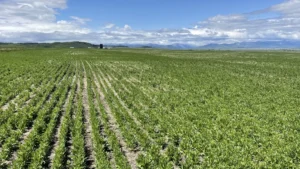Yield10 Bioscience, Inc. announced an update on its Camelina line E3902 development program for the purpose of producing low-carbon feedstock oil for the renewable diesel market in the U.S. and Canada.
In 2022, the company plans to continue expanding Camelina line E3092 seed scale up activities, and to advance the field testing of multiple candidate herbicide tolerant Camelina E3902 lines progressing in the pipeline. The Company is also pursuing value chain collaborations to support the commercial launch of Camelina to supply oil for the renewable diesel market.
The Camelina line E3902 has shown a consistent 5% increase in seed oil content as a percentage of seed weight over control plants. In conjunction with developing yield and oil content traits for Camelina, Yield10 is also deploying herbicide tolerance gene traits with a long history of safe use in North America to protect Camelina from weeds and build grower confidence in the crop. In 2021 Yield10 began a program to introduce herbicide tolerance traits into Camelina, with initial herbicide tolerant Camelina line E3902 plants now having been produced for field testing.
“We are focused on leveraging the very promising attributes of our Camelina line E3902 to produce low-carbon feedstock oil for the renewable diesel market,” said Kristi Snell, Ph.D., Chief Science Officer of Yield10 Bioscience. “Camelina is an ideal crop for the large-scale production of feedstocks for renewable biodiesel. We are developing Camelina line E3902 as a spring variety as well as developing two winter varieties to enable production of low-carbon feedstock oil year-round in the U.S. and Canada.”
“We are establishing a seed scale up program in 2022 that is intended to utilize experienced growers in the U.S. and Canada,” said Darren Greenfield, Senior Director, Seed Operations of Yield10 Bioscience. “Growers are interested in Camelina and determining how this crop could fit into their rotations. We look forward to working with growers to produce seed and oil from Camelina line E3902, as well as our winter Camelina lines. Building on this experience, we will be positioned to introduce herbicide tolerant Camelina to a broad range of growers to enable access to acres on a large scale.”











